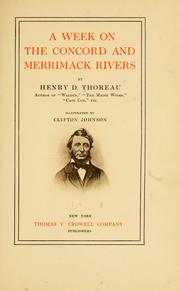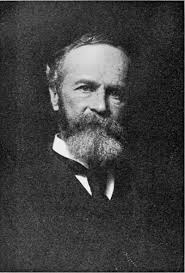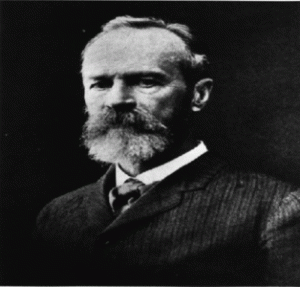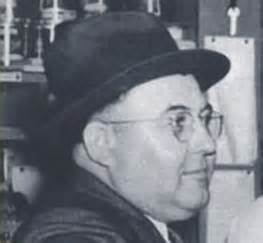Grim-faced men in working clothes and overalls with an interspersing of women in their ranks marched slowly along a high fence surrounding a factory in a mid-western town, watched by special deputies who stood at regularly-spaced intervals with clubs and truncheons ready. Above the geometrically patterned factory windows, two chimney’s smoked. (594)
He paused at South Shore Drive and looked across at the arched entrance-way to the club grounds, wondering again what should he do now. Carroll Dowson had just joined South Shore Country Club, he remembered, and was getting up in the world. Well, the day would come when Studs Lonigan could join a swell club like that if he wanted to. (739–740)

The final volume of James T. Farrell’s Studs Lonigan trilogy, Judgment Day, reads like a guidebook on how to squander a revolutionary movement. In the first two volumes of the series we see Studs Lonigan squander his intelligence and potential in a half-hearted resistance against the institutions that dominate his life. His rebellion is only passive and usually unacknowledged. Studs rejects the “American” values of hard work. He rejects Catholic sexuality and religious practices. He even rejects his community, disregarding friends and family for short-term psychological advantage. Yet, into his late 20s and early 30s, Studs is still capable of resting his identity on these very structures. This is him in response to yet another leftist trying to awaken his political imagination.
Studs laughed at the crazy bastard. A Bolshevik. He supposed the guy was a nigger lover, too. Well, let the Bolshevik get tough. They’d be taken care of, just the same as the shines were during the race riots of ’19. (709)
This is meant to be embarrassing to read, especially after we have been following Studs with no amount of concerned interest for seven hundred pages. He treats the post-World War I Chicago race riots in the same what he treated his childhood brawl with a classmate. He turns what was a vulgar and ugly affair, with no redeeming features, into a celebration that long out lives the event. When looking at the previous volume in the series, I tried to approach the dilemma of Studs’ resistance to institutional confinement along with his embrace of those very structures as his personal identity. Two things make all of this harder to watch. First, Studs is getting old quickly. A life of drinking, smoking, and chasing women has left him worn beyond his years. He is around 30 now and has nothing to show for his life. Second, Studs has been placed in a moment of historical transformation. The novel is set in 1932, during the election campaign that would bring Franklin Delano Roosevelt to office. Studs is surrounded by revolutionaries and revolutionary activity. More so than in the other words in the series, Farrell populates this book with news, trying to hit home that Studs is sleeping through a storm.

It is time to examine Farrell’s politics. He was from a union family; his father was a teamster in Chicago. His writing career began in journalism, writing columns and book reviews for newspapers. In his mid-20s, while writing Young Lonigan he advocated racial integration at the University of Chicago dramatic association. After the Great Depression began, Farrell was writing articles for New Masses. His career is largely literary but he engages in political actions such as May Day marches and picketing publishers that fired leftists. By the time he was finishing the Studs Lonigan triology in 1935, Farrell was fully part of the leftist opposition in the United States. He became a follower of Leon Trotsky and was greatly affected by his murder, having earlier travelled to Mexico to support Trotsky in his legal difficulties there in 1937. During the Cold War, Farrell continued his vocal defenses of leftist writers and thinkers and also worked to support the growing United Auto Workers. In many ways, Farrell’s biography reads like a model example of Great Depression era American radicals. Knowing this makes it easier to read Studs Lonigan as a leftist critique of American working class provinciality and false consciousness.
Back to the tale. In Judgment Day, Farrell places Studs Lonigan in a revolutionary situation. Lonigan does everything he can to avoid facing the historical moment he was in. Instead he continued to shuffle through his life, which is becoming increasingly pathetic to watch. Some of his friends are in jail or dead, but this is not as tragic as Lonigan’s own living death. It also suggests the costs of his earlier recklessness. While we do not want to condemn every (or even most) efforts at pleasure seeking, Lonigan refused to ever examine critically the world he lived in, despite being given insight from many of the people in his life. The costs of this is he is impotent to do anything but accept the guidance of others.
Some of what Lonigan does in the first part of this novel include attend funerals and talk about the good old days. He had a steady girlfriend, Catherine, but he is rather indifferent to her. Lonigan realizes that she is a good hearted woman and would make a good wife, but he cannot help but think he is settling for less than he deserves because of her mediocre looks and figure. He cheats on her, they fight constantly, and the relationship goes nowhere despite a marriage proposal early in the story. He is constantly losing money in the stock market because he invests what little money he has on promises made by opportunities who (like President Hoover) promised the recovery was right around the corner. More than a game, it is one more burden on his already immobile existence. It is also evidence that Lonigan has no capacity to examine the world critically. He joins a secret Catholic brotherhood called the Order of Christopher. Of course, he fails to follow through on what membership in this group might provide to the now-middle-aged man.
Catherine properly diagnoses Studs’ problem during one of their fights. “Only you’re walking along here, so self-satisfied acting as if you were so pleased, with a head like a big balloon full of false pride, acting as if you thought yourself . . . indispensable.” (726) His response to this apt critique is the only strategy he has learned in almost 20 years on the streets. He tries to smash Catherine’s self-confidence. At the mid-point of Judgment Day Lonigan pays to sleep with a married woman who has lost her money gambling and feared to return to her husband empty handed. Yet, despite his betrayal, ridicule, and abuse of Catherine he is confident that a pleasant note preparing their reconciliation is waiting for him.
The second half of the novel really focuses on Studs rapid decline. After the argument with Catherine, he attempts to sleep with the gambler again but is humiliated and thrown out of her house. Studs, who rests much of his masculinity of a perception of his sexual prowess, is told “you don’t even know how to jazz.” (771) Failed, he returns to Catherine. After reuniting Studs rather violently has sex with her. As he apparently raped her and took her virginity, he feels instantly guilty about it and shows some humility before his friends refusing to gossip about it. Throughout their subsequent sexual relationship, Catherine insists on marrying soon. Studs knows that times are bad and he lost most of his savings in playing the stock market so I attempts to evade the commitment. The announcement that Catherine is pregnant forces his hand, but neither family understand why they must hurry to marry given the Depression. He looks for jobs and catches pneumonia and dies.
The political assertiveness of the first half of the novel falls away, for good reasons. Studs’ times for dreaming and making a name for himself ended with Catherine’s pregnancy. At that point, even if he had a political awakening (which he did not), he was forced to focus solely on the family. Responsibility got forced upon him is one way of saying it. Another way to say it is that Studs was forced into action. But is this not exactly the place the nation was at in the early 1930s? When writing this blog, I have rarely looked at what literary critics have been saying about these works, but I cannot help but see the Studs Lonigan trilogy as more than a description of working class life. Studs is a metaphor for America in the 1920s and 1930s. The Depression, like Catherine’s pregnancy, forced the nation into bold action. In 1935, Farrell has no way of knowing if the half measures of the New Deal would be enough. I suspect he would have found them limiting, which is why Lonigan has to die at the end.
In the second to last chapter, we see Studs’ father walking the street, bumping into a “Red parade.” Old man Lonigan has become increasingly fascist during the Depression, even suggesting the need for a Mussolini to help correct America’s economy with an emergency dictatorship. We are reminded at the end, through this parade, that many in the United States were not sleeping through the revolutionary moment. It also paints a sharp contrast to the street as it has been presented in the previous 900 pages. Instead of a place of rootless wandering, racial violence, and sexism, it becomes the space of re-creation and re-imagining. This takes place while Studs is dying (his father wonders if he is already dead).
Strange music filling the street, the shouts and cries of an approaching throng headed by an overcalled white man and a Negro carrying an American and a red flag, policeman stretched along the cubs in both directions, shabby people behind the line of bluecoats, a crowd constantly augmenting in front of the corner speakeasy saloon, children scampering and dodging through the group; all this befogged and confused Lonigan, and he puzzled with himself trying to figure what it was. . . The noise and music swelled in volume, and he told himself, as if in an argument with someone else, that with things as bad, why couldn’t the Reds let well enough alone. (934–935)

Union Square Rally, 1930s
The scene goes on for quite some time, juxtaposing the lively parade scenes with the failure of Old Man Lonigan to understand that the people he condemned throughout his life were doing the promethean imagining that he and his son could not.
What shocks him above all is their capacity for political pleasure (something he never had through a lifetime of support for the Democratic Party).
He seemed happy. That frail little woman in blue. They were happy. And they didn’t look like dangerous agitators, that is, except the eight-balls. All black boys were dangerous, and they couldn’t be trusted farther than their noses. But the white ones, they looked like men and women, with faces the same as other men and women. He could see that most of them were poor, and many of them, like that fellow in gray dragging his feet, were tired. He wondered how they could be Reds and anarchists, so dangerous and so perverted that they even made little children into atheists. He shook his head in bewilderment, and repeated to himself that these people were happy. (940)

Old Man Lonigan navigates the protests and starts drinking at a bar, spending the last moments of his son’s life angry and drunk.



















